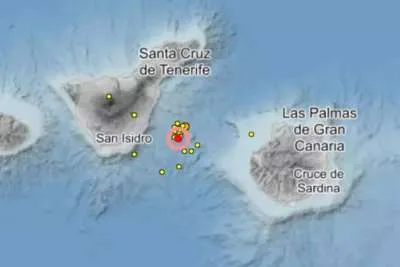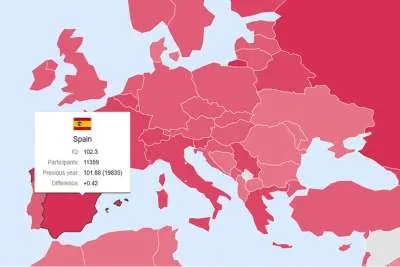The Brexit effect: Spain needs 60,000 more workers in the hospitality industry
- 29-03-2023
- Business
- Canarian Weekly
Despite the record number of visitors choosing Spain, including the Canary Islands, as their favourite holiday destination since the pandemic, the country is dealing with a major shortage of workers, particularly in the hospitality industry. Human resources company, Randstad, says that Spain urgently needs at least 60,000 additional workers to deal with the current situation.
The National Institute of Statistics (INE) revealed that in January alone, Spain welcomed 4.1 million international tourists, which was an increase of 65.8% compared to the same period last year, who spent 5.2 billion euros for their holiday (including flights and accommodation), which was 2.1 billion or 71.7% more than in January 2022.
In addition, INE figures released last week, on March 23rd, showed that in February there was a 24% increase with 16.8 million overnight stays compared to the same period of last year.
The latest INE statistics also revealed that the increase in demand has also led to an increase in hotel prices, which now stand at an average of 99.80 euros per room in Spain, or 13% more compared to 2022 and 20% more when compared to 2019 statistics.
In order to manage the current situation of staff shortages, Spain’s Minister of Inclusion, Social Security and Migration, Jose Luis Escriva, said last year that the country would ease work permit rules for foreigners as a response to labour shortages noted in several industries, including the tourism and hospitality sectors.
He confirmed that the country would grant a larger number of temporary visas to third-country nationals for sectors that need workers to help the country recover faster from the damages caused by the spread of the Coronavirus and its new variants.
Since the UK left the EU, Spain has lost thousands of seasonal workers in holiday resorts, as Brits could come over for the summer and work for up to six months without the need of a visa or becoming a resident. But now they can only come for 90 days at a time out of 180 days, and cannot work unless they get a visa, making the whole situation far more complicated and expensive, so subsequently are not coming, leaving Spain with a massive problem.
The Department of Social Security reported that there were 17,478 more workers in the system than in the first month of this year, which highlights how the country is struggling with a significant worker shortage.



























































